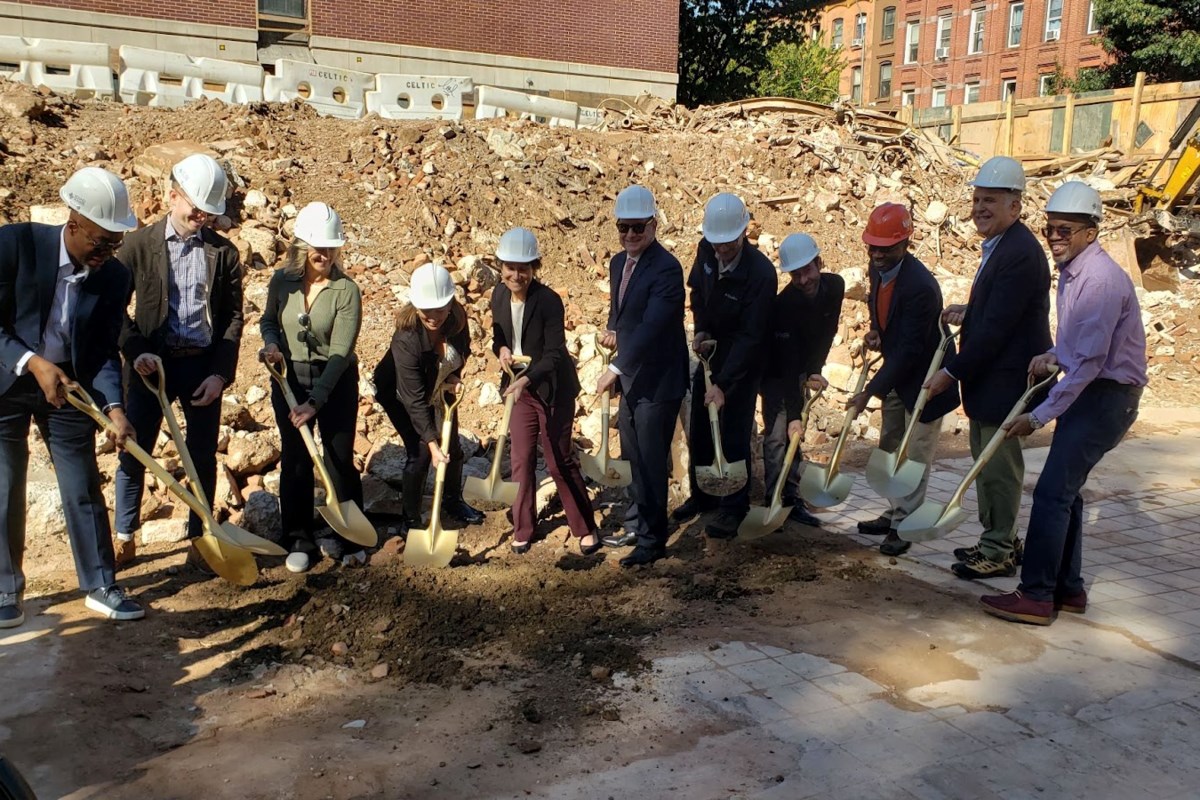The Doe Fund Breaks Ground on 200-Bed Transitional Housing Residence in BK
The Doe Fund Breaks Ground on 200-Bed Transitional Housing ... BK Reader


Homeless Services Organization Breaks Ground on Transitional Housing Residence

Homeless services organization, the Doe Fund, has broken ground on a 200-bed transitional housing residence at 510 Gates Avenue this week.
Empowering Not-for-Profit and Shelter Providers
The Doe Fund’s groundbreaking initiative aligns with the Sustainable Development Goals (SDGs), particularly Goal 11: Sustainable Cities and Communities. By enabling not-for-profit and shelter providers to build, own, and operate their own real estate, this project empowers them to take control of their own destiny while also being cost-effective for the city. Molly Park, Commissioner of the New York City Department of Social Services, expressed her gratitude to The Doe Fund for being a partner in this endeavor and highlighted the potential for expanding not-for-profit owned shelters across the city.
A Milestone Achievement
This groundbreaking marks a significant milestone for the Doe Fund, which has been in operation for over 30 years. The new transitional housing residence is located next to the organization’s first facility, which opened in 1990. Since then, the Doe Fund has expanded its reach with a 200-bed residence in Harlem and a 400-bed residence in East Williamsburg. Additionally, the organization has developed nearly 900,000 square feet of state-of-the-art permanent affordable and supportive housing.
A Holistic Approach to Homelessness
Jennifer Mitchell, President and CEO of The Doe Fund, emphasized the need for holistic solutions in addressing homelessness. The program at 510 Gates Avenue follows a “three-legged stool” approach, providing paid transitional work, housing, and comprehensive social services. This integrated approach aims to equip individuals with the necessary skills, confidence, resources, and network to secure employment, build a career, and find stable housing all in one place.
Ready, Willing & Able Program
Upon completion in 2025, 510 Gates Avenue will become the first transitional residence built by The Doe Fund in twenty years. Residents of the facility will have the opportunity to join the Ready, Willing & Able program. This program offers paid work, housing, and support services, including:
- Case management
- Adult basic education
- Computer skills and financial literacy classes
- Occupational training in living wage fields
- Job search preparedness
- Legal referrals
- Linkages to employment and permanent housing
A Personal Testimony
Rahdel Sharbaan, Associate Director of 510 Gates Avenue and a graduate of Ready, Willing & Able, shared his personal experience with the program. He recounted how it transformed his father’s life when he was struggling with homelessness and addiction. Sharbaan expressed his excitement about being able to provide the same opportunity for 200 more men who are ready to change their lives. He emphasized that the program has proven to be effective for himself, his father, and thousands of others who have experienced extreme hardships.
SDGs, Targets, and Indicators
| SDGs | Targets | Indicators |
|---|---|---|
| SDG 1: No Poverty | 1.1 By 2030, eradicate extreme poverty for all people everywhere, currently measured as people living on less than $1.25 a day | No specific indicators mentioned in the article |
| SDG 8: Decent Work and Economic Growth | 8.5 By 2030, achieve full and productive employment and decent work for all women and men, including for young people and persons with disabilities, and equal pay for work of equal value | No specific indicators mentioned in the article |
| SDG 11: Sustainable Cities and Communities | 11.1 By 2030, ensure access for all to adequate, safe and affordable housing and basic services and upgrade slums | No specific indicators mentioned in the article |
1. Which SDGs are addressed or connected to the issues highlighted in the article?
The SDGs that are addressed or connected to the issues highlighted in the article are SDG 1: No Poverty, SDG 8: Decent Work and Economic Growth, and SDG 11: Sustainable Cities and Communities.
2. What specific targets under those SDGs can be identified based on the article’s content?
Based on the article’s content, the specific targets that can be identified are:
– Target 1.1: By 2030, eradicate extreme poverty for all people everywhere, currently measured as people living on less than $1.25 a day (under SDG 1: No Poverty)
– Target 8.5: By 2030, achieve full and productive employment and decent work for all women and men, including for young people and persons with disabilities, and equal pay for work of equal value (under SDG 8: Decent Work and Economic Growth)
– Target 11.1: By 2030, ensure access for all to adequate, safe and affordable housing and basic services and upgrade slums (under SDG 11: Sustainable Cities and Communities)
3. Are there any indicators mentioned or implied in the article that can be used to measure progress towards the identified targets?
No specific indicators are mentioned or implied in the article that can be used to measure progress towards the identified targets.
Behold! This splendid article springs forth from the wellspring of knowledge, shaped by a wondrous proprietary AI technology that delved into a vast ocean of data, illuminating the path towards the Sustainable Development Goals. Remember that all rights are reserved by SDG Investors LLC, empowering us to champion progress together.
Source: bkreader.com

Join us, as fellow seekers of change, on a transformative journey at https://sdgtalks.ai/welcome, where you can become a member and actively contribute to shaping a brighter future.







